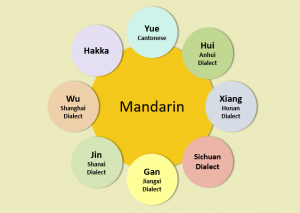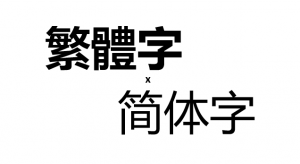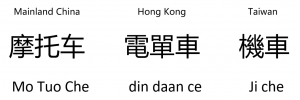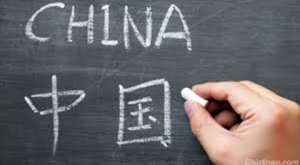Somethings your business needs to know about the Chinese language
Whilst English is the most widely used language in the world, Chinese has the largest number of speakers. It is therefore important for companies looking to market in China to have a strong grasp of the language and its variations.
1900, BeijingEight Power Allied troop (Britain, France, US, Germany, Austria, Italy, Japan, Russia), conqured the capital city of China.They cut a ceasefire deal with then defeated Tsing Dynasty, the last monarch regime of China, for 450 million taels of silver worth reparations. It was an unprecidented financial punishment that symbolized every living China at that time had to contribute 1 tael of silver in order for the whole country to pay off the debt to the Eight Power. It was the one of the darkest moment of modern Chinese history, deeply carved in to the nation’s memory.
The war and the aftermath buried the Dynasty and marked the beginning of half a century-long revolution, struggles, suffers, and nearly national subjugation and genocide, however, that ultimately led to the new China’s birth in 1949. Then China becomes what it is now, the second largest economy on the planet, it is not surprising that China is the market that almost all businesses would like to explore. Nowadays large international corporations probably are aiming to a revenue per capita in a different way though, more peacefully and more of civilization nature but with the same purpose – profit extracted from the single largest market in the world 118 years ago and now.
If every breathing Chinese person contributed $1 profit to their business, the owner of the business would become a billionaire. However, this huge opportunity comes with hidden dangers as well. Aside from the cultural differences and conflicts of tradition, the language can be the first barrier for international companies.
Despite the fact that almost 20% of the world’s population regard Chinese as their native language, it is more complicated as a language than you might think. Mandarin only became the official legal language in China relatively recently, whilst the well-known Cantonese is just a dialect. Simplified Chinese is not Mandarin (although it is often confused as such), and Cantonese isn’t equivalent to traditional Chinese either.
What do you need to know if you are targeting the Greater China Region? Well, like almost all languages, Chinese has both spoken and written versions.
SPOKEN CHINESE
Mandarin, also known as standard Chinese, is a relatively ‘young’ language. I use the word ‘young’, not ‘new’ because Mandarin is actually based on a local dialect which originates not far from Beijing.

As the official spoken language, not only in mainland China but also in Taiwan, Hong Kong, Macau and Singapore, Mandarin has become increasingly widespread. It is worth mentioning that Mandarin in Taiwan and Singapore can actually be quite different from Mandarin in mainland China, due to differences with proper nouns. Despite the difference, most of the time people won’t find it too difficult to understand each other.
We need to thank pioneer migrants and Bruce Lee for the popularity of Cantonese. As the official spoken language in Hong Kong and Macau, Cantonese is also spoken in the Guangdong (Canton) province in mainland China. Cantonese can be considered as a dialect of Chinese rather than a separate language.
WRITTEN CHINESE
People in mainland China started to write with simplified Chinese in 1956, as it had fewer strokes and was much easier to write, compared to traditional Chinese – see example below.

However, people in Hong Kong, Macau and Taiwan still use traditional Chinese as their written language. Due to simplified Chinese being based on traditional Chinese, these two languages have many similarities. Yet, if you combine the different uses of spoken and written languages, you need to be careful, as people across the Greater China region have formed different habits.
MOTORCYCLES & FREE DELIVERY
If you ask a New Yorker and a Londoner where the subway is, you may get two totally different answers. The same could also happen in the Greater China region, as if you use the wrong terms in the wrong place, people will have no idea what are you talking about.
For instance, ‘motorcycle’ has three names in the Greater China region: ‘mo tuo che’ in mainland China; ‘din daan ce’ in Hong Kong and ‘Ji che’ in Taiwan. To complicate matters further, both the pronunciation and written words are very different, as shown below.

If you are a retailer, the term ‘free delivery’ often draws a lot of customer attention. However, in mainland China, Hong Kong, and Taiwan, ‘free delivery’ is expressed in different ways. If you target people who grew up in Taiwan and the Hong Kong region with the term ‘Bao You’, they may have no clue what you are talking about, as ‘Mian Yun Fei’ is the acceptable way to express ‘free delivery’ in these two areas.
Though people from mainland China are more familiar with ‘Bao You’, they can also understand the term ‘Mian Yun Fei’.

At WeChat Apply, we know the difference. If you want to find out more about marketing in China, feel free to contact us.
About WeChat apply
WeChat apply is an award-winning China WeChat digital marketing agency based in Sydney. Working across all aspects of the marketing solutions like WeChat promotion, WeChat Official Account Registration, WeChat KOL, WeChat Mini Program Ad. and so on, we will ensure you have a solid marketing strategy together with perfectly delivered campaigns. Wechat apply will transform your China online marketing to increase your lead generation, brand awareness, and market engagement.

